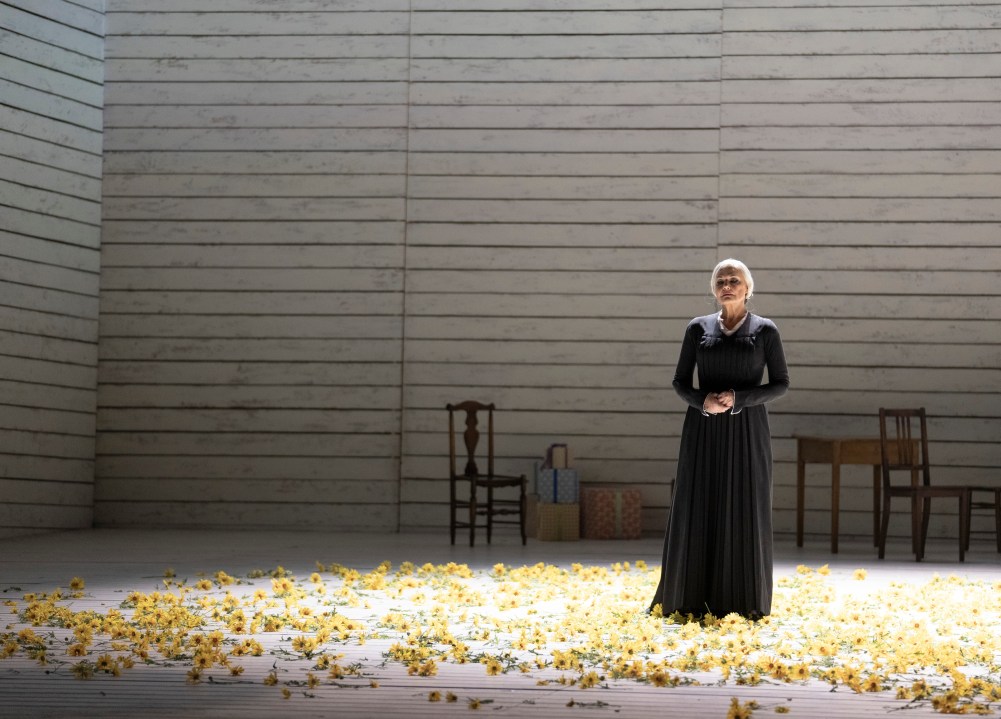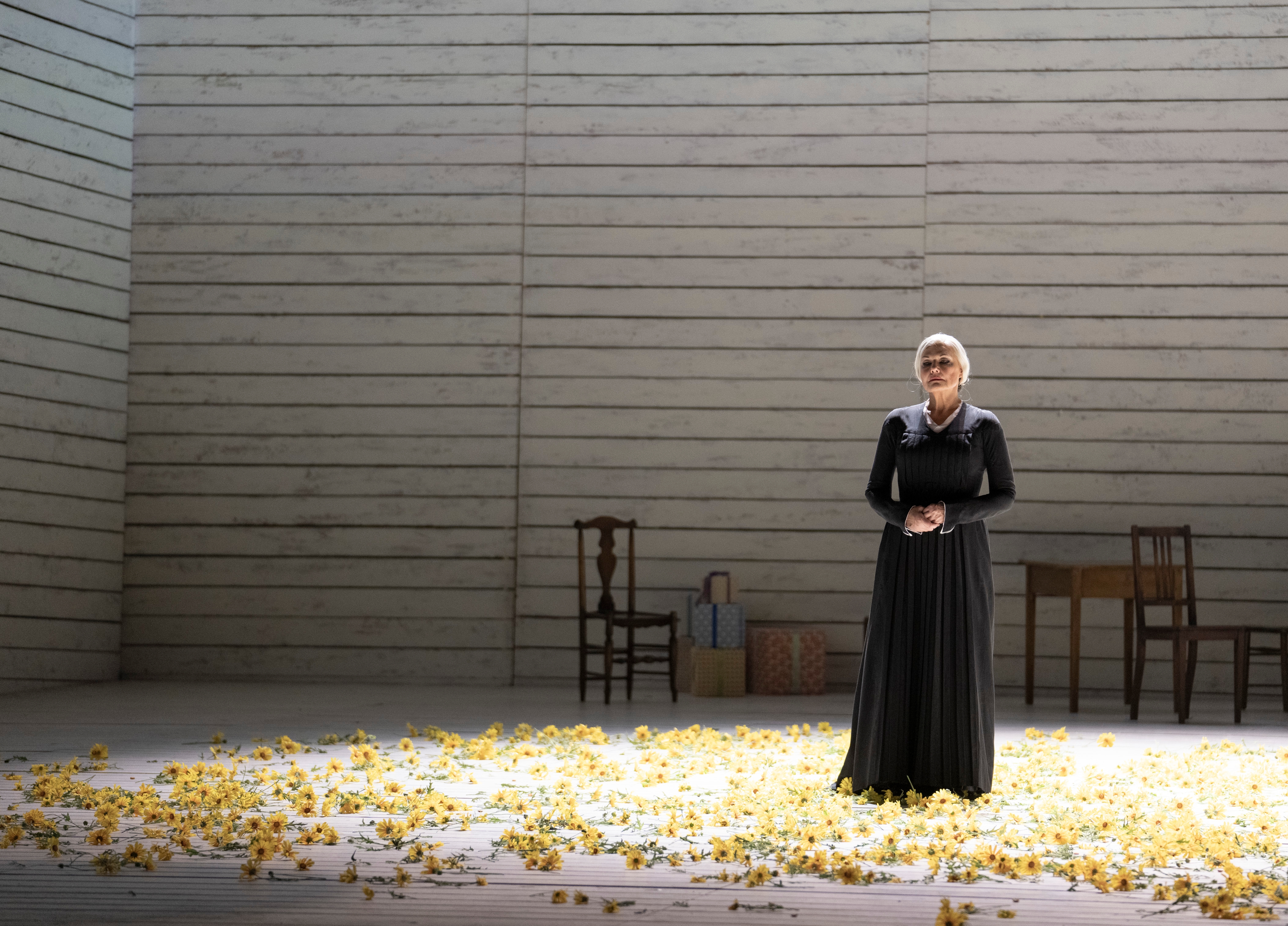Leos Janacek cared about words. He’d hang about central Brno, notebook in hand, eavesdropping on conversations and trying to capture their exact rhythm and intonation in scribbled semitones and quavers. So there’s a tidy irony in the fact that the opera that made his name isn’t really called Jenufa at all. Janacek called it Jeji Pastorkyna, and if it’s easy enough for non-Czech speakers to understand why that was never likely to travel, it’s not without consequence. Another woman drives this story, and in the original title she’s present but unnamed: Jenufa’s stepmother, described simply as Kostelnicka, or churchwarden. Jeji Pastorkyna translates roughly as ‘Her Stepdaughter’.
No matter. When you watch the opera, the complexities untangle themselves, and you might even argue that the renaming heightens the dramatic effect. If you expect Jenufa to be the central figure, it’s easier to assume that the unbending Kostelnicka is the standard wicked stepmother, and adjust your expectations accordingly — ready to be blindsided in Act Two, when this unlikeable older woman (we never even learn her Christian name) commits an act of unforgiveable evil from motives of absolute love. The central strength of Claus Guth’s new production is that it avoids that obvious jolt and offers something more gradual, more complex, and in terms of Janacek’s emotional world — where nothing human is beyond comprehension, if not sympathy — more rewarding.
This felt like one of those performances that operagoers will be talking about two decades from now
Karita Mattila plays the Kostelnicka and on the first night, at least, this felt like one of those performances that operagoers will be talking about two decades from now: charismatic, proud and with that formidable soprano still burning (when necessary) with magnesium brilliance. But Mattila is also capable of a terrible, vulnerable softness, both vocally and dramatically, and in Guth’s conception she’s displaying signs of emotional subsidence as early as Act One. Asmik Grigorian’s intelligent, anxious Jenufa is a shrewd piece of casting too, with the plangent, matte lustre of her intensely expressive singing making a convincing match for Matttila’s more fragile moments. Jenufa and the Kostelnicka might not be related by blood, but their kinship is made unnervingly clear.
Beside performances (and writing) of such subtlety, the male characters can only hope to scrape the surface, but Nicky Spence was affecting as Laca, with an oaken tone and an air of wounded introversion that made his violence, as well as his remorse, at least partially comprehensible. Meanwhile Guth’s visual concepts, initially tiresome, receded swiftly into the background. The costumes are sombre and broadly Edwardian; the designs (by Michael Levine) have a generic atmosphere of German expressionism. A colossal raven stalks the stage, eyes glistening beadily, and in Act Two, Jenufa and Kostelnicka inhabit an Anselm Kiefer-ish installation of wire bedframes. The chorus serves as a living backdrop or an elemental threat, and there’s a hint of condescension about the embroidered folk costumes in Act Three — a German director’s (presumably unconscious) assumption that opera from beyond the Elbe is basically exotica.
That’s probably unfair. The overall visual effect is to narrow the focus on to the central characters and their dilemma, and when they’re embodied as persuasively as they were here, little more is really required. Henrik Nanasi conducted, for the most part with a brooding, low-key lyricism that suited the characterisation. But he held plenty of blood and tears in reserve, and as Mattila was led away to her fate the orchestra reared up to its full, terrifying height, with a grandeur and a rawness that overwhelmed reason and scoured straight through to that place where you bury those primal, awful things that we all know but can’t ever say. Which — in Janacek — is usually a good sign.
Edward Dick’s new Carmen for Opera North felt under-cast, with long Covid having knocked out the intended José, Rafael Rojas. Chrystal E. Williams, as a burlesque-queen Carmen, was the exception: sensuous and often tender in her vocal performance, she maintains a gravitas that’s all the more impressive once you’ve seen some of the moves that she’s asked to perform. The setting is a 1970s Tex-Mex strip joint, and Dick’s production comes across, intentionally or not, as a slightly baggy homage to Calixto Bieito’s sweaty Franco-era updating (as seen at ENO shortly before the pandemic). Escamillo is a rodeo rider and makes his entrance on a mechanical bull, which is quite fun. Elsewhere, the imagery — a towering billboard, a male dancer cavorting in his underwear during the orchestral intermezzos — appears to quote almost directly from Bieito.
Anyway, it’s an effective and atmospheric updating, filled with vivid details: you can’t go far wrong with a team of line-dancing moppets in Stetsons. Garry Walker conducted, with delicacy as well as passion; and if it’s no one’s fault that the singing was patchy, there’s every reason to suppose that this Carmen will deliver more of a vocal punch in future revivals.







Comments